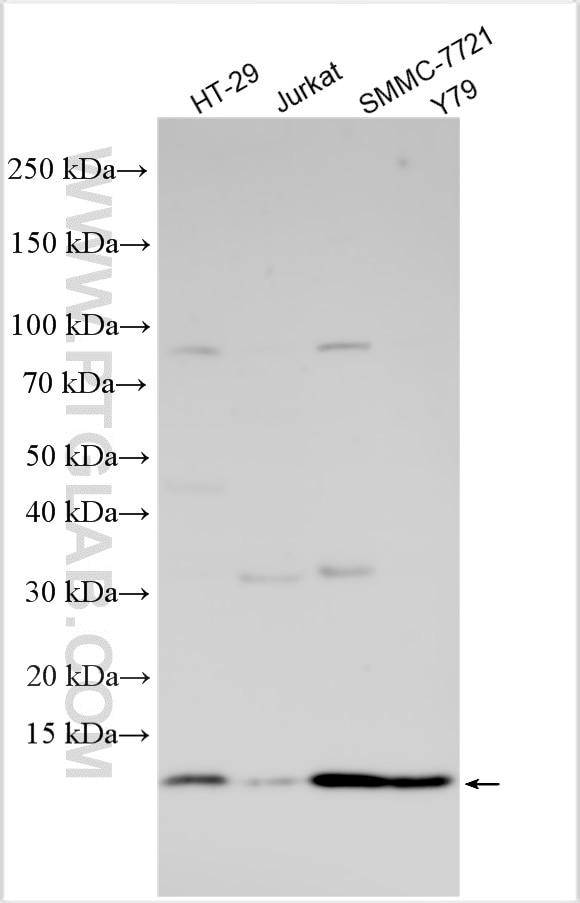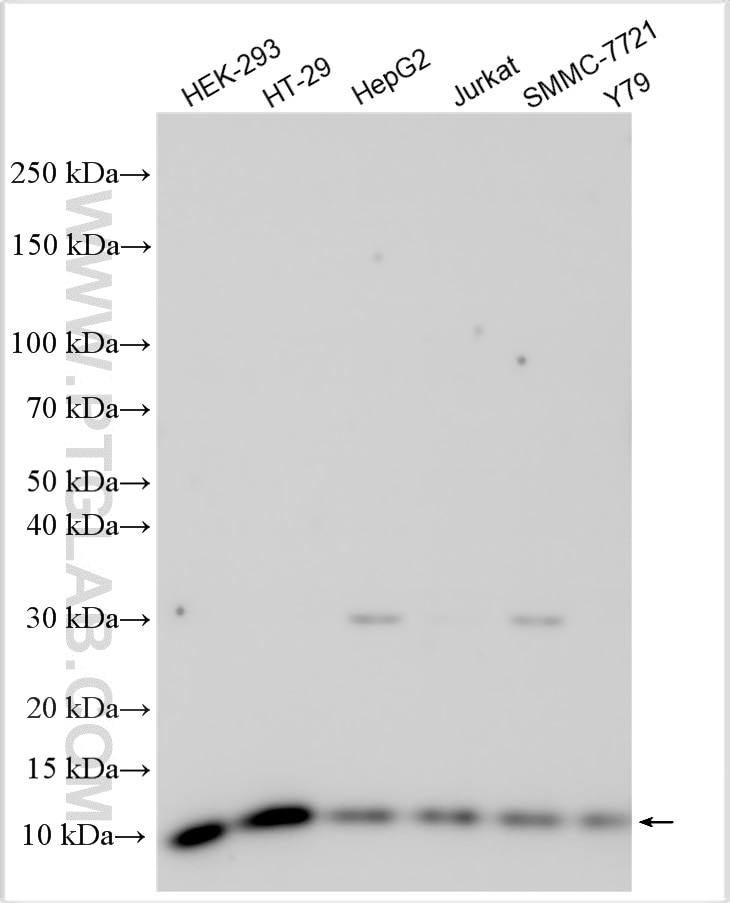Tested Applications
| Positive WB detected in | HEK-293 cells, HT-29 cells, HepG2 cells, Jurkat cells, SMMC-7721 cells, Y79 cells |
Recommended dilution
| Application | Dilution |
|---|---|
| Western Blot (WB) | WB : 1:1000-1:4000 |
| It is recommended that this reagent should be titrated in each testing system to obtain optimal results. | |
| Sample-dependent, Check data in validation data gallery. | |
Product Information
10610-1-AP targets CKS1B in WB, ELISA applications and shows reactivity with human samples.
| Tested Reactivity | human |
| Host / Isotype | Rabbit / IgG |
| Class | Polyclonal |
| Type | Antibody |
| Immunogen | CKS1B fusion protein Ag0928 Predict reactive species |
| Full Name | CDC28 protein kinase regulatory subunit 1B |
| Calculated Molecular Weight | 10 kDa |
| Observed Molecular Weight | 10 kDa |
| GenBank Accession Number | BC007751 |
| Gene Symbol | CKS1B |
| Gene ID (NCBI) | 1163 |
| Conjugate | Unconjugated |
| Form | Liquid |
| Purification Method | Antigen affinity purification |
| UNIPROT ID | P61024 |
| Storage Buffer | PBS with 0.02% sodium azide and 50% glycerol , pH 7.3 |
| Storage Conditions | Store at -20°C. Stable for one year after shipment. Aliquoting is unnecessary for -20oC storage. 20ul sizes contain 0.1% BSA. |
Background Information
Cyclin-dependent kinase regulatory subunit 1B (CKS1B), a member of the conserved cyclin kinase subunit 1 (CKS1) protein family, plays an essential role in cell cycling. A large number of studies have shown that CKS1B is associated with the pathogenesis of many human cancers and closely related to drug resistance. (PMID: 33102238)
Protocols
| Product Specific Protocols | |
|---|---|
| WB protocol for CKS1B antibody 10610-1-AP | Download protocol |
| Standard Protocols | |
|---|---|
| Click here to view our Standard Protocols |





